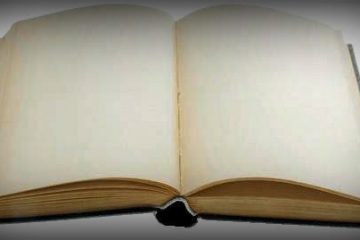Is indeterminism the same thing as free will?
Is indeterminism the same thing as free will?
A substantial body of the free will debate is about the relationship between free will and determinism in science. In fact, indeterminism has no place at all in an understanding of human free will. Indeterminism is the false presupposition of the free will debate.
Was Karl Popper a dualist?
However, although Popper was a body-mind dualist, he did not think that the mind is a substance separate from the body: he thought that mental or psychological properties or aspects of people are distinct from physical ones.
What is the indeterminism theory?
Indeterminism, on the other hand, is the view that at least some events in the universe have no deterministic cause but occur randomly, or by chance.
Who is considered as the father of indeterminism?
Indeterminism has been promoted by the French biologist Jacques Monod’s essay “Chance and Necessity”.
Are libertarians Incompatibilists?
The incompatibilist view is pursued further in at least three different ways: libertarians deny that the universe is deterministic, hard determinists deny that any free will exists, and pessimistic incompatibilists (hard indeterminists) deny both that the universe is determined and that free will exists.
What did Karl Popper say about falsification?
Summary of Popper’s Theory The Falsification Principle, proposed by Karl Popper, is a way of demarcating science from non-science. It suggests that for a theory to be considered scientific it must be able to be tested and conceivably proven false.
Was Karl Popper a psychologist?
Karl Popper started his career as a psychologist—wrote his Ph. D thesis on psychology of thinking. Shortly before submitting his dissertation for his Ph. D., the focus of Popper’s interest switched from the psychology, to the methodology, of thought and problem-solving, and in particular to the methodology of science.
Are we free if Indeterminism is true?
If indeterminism is true, then all undetermined human actions are random, so that we could not do other than what we do, i.e., we’re never responsible for what we do. Either determinism is true or else indeterminism is true. Thus, we’re never responsible for what we do.
What do soft determinists believe?
Soft determinism (or compatibilism) is the position or view that causal determinism is true, but we still act as free, morally responsible agents when, in the absence of external constraints, our actions are caused by our desires. Compatibilism does not maintain that humans are free.
What did Karl Popper mean by historical indeterminist?
Popper, then, is an historical indeterminist, insofar as he holds that history does not evolve in accordance with intrinsic laws or principles, that in the absence of such laws and principles unconditional prediction in the social sciences is an impossibility, and that there is no such thing as historical necessity.
What was the central problem for Karl Popper?
The Problem of Demarcation For Popper the central problem in the philosophy of science is that of demarcation, i.e., of distinguishing between science and what he terms “non-science” (e.g., logic, metaphysics, psychoanalysis, and Adler’s individual psychology).
What did Karl Popper think about scientific inquiry?
Science, like virtually every other human, and indeed organic, activity, Popper believes, consists largely of problem-solving. Popper accordingly repudiates induction and rejects the view that it is the characteristic method of scientific investigation and inference, substituting falsifiability in its place.
How is indeterminism related to the idea of chance?
Indeterminism is the idea that events (or certain events, or events of certain types) are not caused, or not caused deterministically . It is the opposite of determinism and related to chance.


